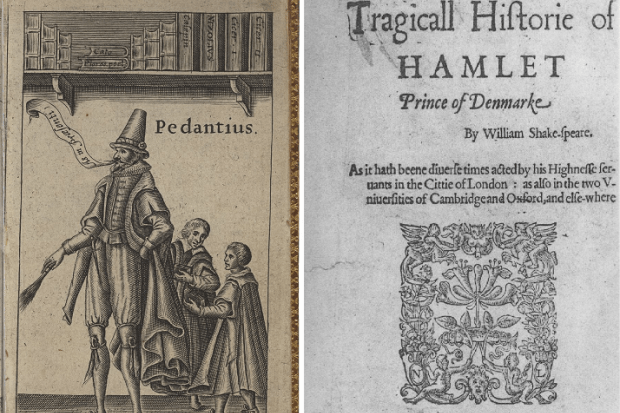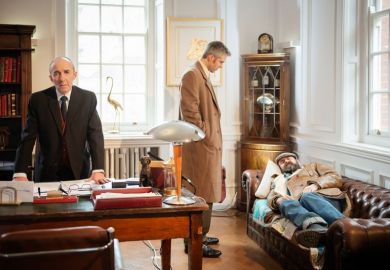A study has claimed that the Bard himself may have used elements of university productions in his work.
A new book has traced some of William Shakespeare’s most famous characters – including Hamlet and Macbeth – back to their roots in student plays, which may also have helped the playwright – who did not go to university – shape his depictions of academic life.
Such plays in the 16th and 17th centuries were controversial and provoked debate on issues around gender, identity, propriety, morals and theatrical spectacle, explained Daniel Blank, an assistant professor in early modern literature at Durham University.
His book, Shakespeare and University Drama in Early Modern England, published on 2 March, aims to tell a lesser known part of Shakespeare’s history and to demonstrate that the playwright’s own lack of a university education did not mean that he had no knowledge of academe.
“Student theatre and the controversy around it offered Shakespeare a window into the world of universities, which he seized upon,” Dr Blank said.
“Shakespeare used this to inspire some of his most famous characters, such as Hamlet and Macbeth, and to shape depictions of academic culture in some of his works.
“It is a fascinating insight into Shakespeare’s interest in and engagement with university life.”
An example highlighted by the book concerns a play performed at Oxford in 1592 that “critiqued and mocked the insularity of the university”.
William Gager’s Hippolytus caricatured the anti-theatricalism movement that opposed theatre on moral and religious grounds, Dr Blank explained.
“Shakespeare’s most famous student, Hamlet, displays the same prejudices, which he learned as a university student at Wittenberg,” he added.
“By considering Hamlet in relation to Hippolytus, we can see how famous scenes like Hamlet’s interactions with Ophelia and with the acting troupe that visits Elsinore were shaped by, and engage with, contemporary debates about student theatre and the morality of performance.”
Dr Blank also highlights a connection between Macbeth and Tres Sibyllae, a short play that was performed before King James I when he visited Oxford in 1605.
His archival research has also highlighted various other parallels between work performed by Oxford and Cambridge students and the plays written by Shakespeare, which, he says, illustrate “the playwright’s awareness and engagement with these student productions”.
Register to continue
Why register?
- Registration is free and only takes a moment
- Once registered, you can read 3 articles a month
- Sign up for our newsletter
Subscribe
Or subscribe for unlimited access to:
- Unlimited access to news, views, insights & reviews
- Digital editions
- Digital access to THE’s university and college rankings analysis
Already registered or a current subscriber?








